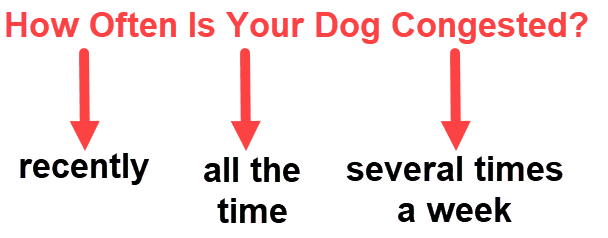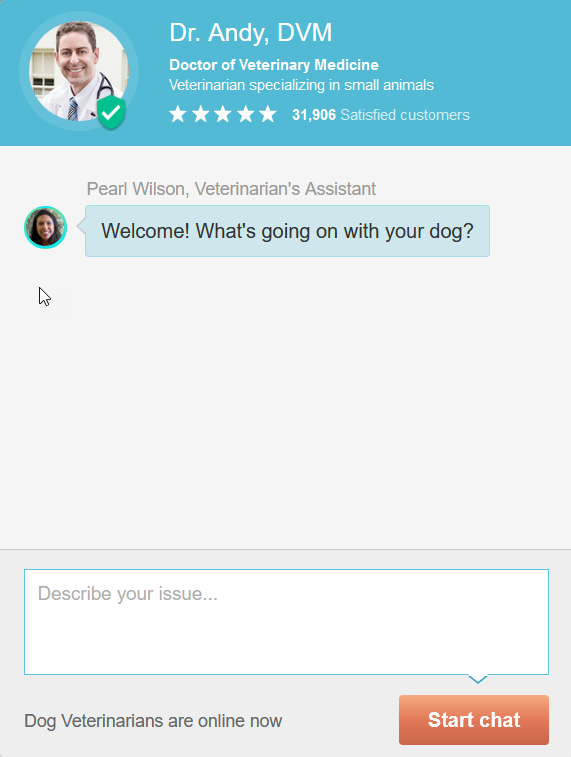The Real Reason Why Your Dog Is Congested
Positively affecting the body’s organs is what nutrition can do, so let’s see if we can improve the quality of life for our four-legged friends. Congestive Heart Failure is not the same as a simple case of congestive heart disease. In fact, it may be quite the opposite. Congestive heart failure is usually associated with a problem in one or more of the organs of the cardiovascular system.
It is also often associated with other underlying diseases, such as kidney failure. In the past, congestive heart failure has been associated with aging. However, now more and more young dogs are having heart failure.
On the whole, however, the incidence of congestive heart failure increases with age. What’s happening to your dog? This may be his first time experiencing this condition, but he will have trouble breathing until he gets to the hospital. His breathing will become shallow and irregular, and his chest will feel tight.
These are signs of fluid in his lungs and heart. In an attempt to eliminate the extra fluid, the kidneys will try to excrete it by producing urine. This often makes your dog thirsty. He will need a special diet and medical treatment to avoid dehydration and help with the heart problem. Let’s start out by defining what congestive heart failure is, then we’ll take a closer look at the symptoms and how to find a way to deal with them.

Some Of The Symptoms Include:
1.Compared to other animals, the heart of the dog seems small and weak. It’s usually hard to tell whether a dog is having trouble pumping blood around the body.
2. The animal may experience difficulty breathing or may breathe irregularly. His breathing will become shallow and labored. He may pant or even cough.
3. The animal may have a rapid heartbeat. A slow or irregular heartbeat can be dangerous, but if your dog’s heartbeat is normal, you probably don’t need to worry about it. If the heart beat becomes very fast and regular, it can be more significant. This is called arrhythmia. Arrhythmia is also common in dogs with CHF.
4. The animal may develop an enlarged liver because congestive heart failure can lead to liver problems. In some cases, the liver can become so enlarged that it pushes the heart out of place.
5. The dog may have fluid in his lungs, which can make breathing difficult.
Reasons For Why Dog May Be Congested And Is Having Nasal Congestion All The Time
1.If a dog has a low red blood cell count, this can mean he is anemic. Anemia causes the blood to have less oxygen than normal. The other way of looking at the cells is to measure the different kinds of cells. The total number of cells in the blood will give us information about how healthy the dog is overall. If you measure the white blood cells or the platelet count, you can tell if the dog is fighting an infection or if his immune system is functioning properly.
Is Your Dog Congested? – Get Answers FAST!
• Its Important To Know How Often Your Dog May Be Congested To Determine How Serious It Can Be… Choose Below How Often Your Little One May Be Congested…
Have Concerns About Your Pet… Not Sure If Something Serious Could Be Going On With Your Dog… ASK All Your questions Below To Online Specialized Dog Vets Who Are Available 24/7 To Find Out Why Your Dog Is Congested…
2. Another way to find out if a dog is congested is by examining his tongue. You may need to check this several times to be sure. A dog’s tongue should not be dry all the time. It should be pink, not pale, even with licking it.
Without a doubt, your dog has congested when his tongue is dry. This is also known as oral dehydration. There are several reasons why a dog may have a dry tongue. If the dog has a respiratory disease or is allergic, he will have an irritated mouth. Many dogs who have congestive heart failure will experience dry skin and mouth as well. He will also not have enough saliva to wash out of his mouth.
3. When we look at the cells in the blood, we can also determine if a dog is having inflammation. Inflammation is a process in which cells and tissue become sore or red and swollen. In the blood, the white blood cells cause this inflammation. If you see white blood cells that are circulating, this means there is a problem with the immune system. An infection or virus is most likely the cause. The platelets are also important in inflammation. If the platelets are high, this means that your dog has inflammation in the blood and it may be a good thing.
4.Besides the symptoms from the above list, there are other signs of heart failure and/or congestion that a veterinarian can use to figure out what is happening inside of your dog. If you notice these signs, you will know that your dog has a heart disease. These include: If a dog has any of the above signs, he has congested. It is hard to pinpoint just why your dog has congested.
Home Remedy Ideas To Help Dog With Congestion
1.Although there is no way to make congested go away, there are some things that you can do to help it. One thing you can do is add a little salt to your dog’s food. You can add salt to his dry food or put some into his water bowl. This will help the fluid in his body come out.
2. Another home remedy idea for congested is to use a humidifier in the house. A humidifier will help make sure that the air in the house is moist and clean. When a dog is congested, he should not be exposed to too much humidity. A humidifier may help your dog get better.
3. As mentioned above, you should watch the animal for any signs of dehydration. When you see that your dog has a dry tongue, you will know that he has congested. It is also common for dogs who have congested to lick their eyes, nose or mouth. If this happens, you should make sure your dog does not lick himself until you take him to the vet. This is a sign that he has an infection.
4. If you see a white or yellow discharge from your dog’s eyes, nose or ears, it could mean that he has an infection. You should take your dog to the vet for a complete examination. You should also see if there is any type of discharge coming out of your dog’s eyes, nose or mouth.
5. Your dog’s nose may be congested when he sniffs and inhales deeply. If he sneezes or barks, he may be congested.
6.Unquestionably, your dog is congested when you feel his fur around his face and on his tongue. He may also have a red tongue when he licks his mouth. Your dog’s eyes may be watery or have discharge coming out.
7.Congested may also appear on your dog’s skin. You will notice redness, swelling or bumps on your dog’s nose, ears, lips, paws, belly or throat.
8.It is possible that your dog may have a fever. He will usually have a fever when he has congested. If this is the case, make sure that you watch him for any other signs of illness.
9.Some dogs with congested do not eat well. They often eat less and can lose weight. This could lead to malnutrition. Your dog should still be given enough to eat, but it might take more than usual.
10.One way to help a dog with congestion is to use an antihistamine. Anti-allergy medications are especially helpful if your dog has a problem with allergies. Your veterinarian may recommend giving him some of these medications to help prevent future infections.
11.Some people might not even realize that their pet is sick until after they have already seen a vet. The pet owner should keep a list of the symptoms that their pet is experiencing. This will make it easier to call the vet if they see any of the signs listed above.
How To Know If Sinus Congestion Can Be Serious And If They Might Need Taken To The Vet Or Not…
1.Laterally deviated nares (nasal discharge) can occur from sinus infection, allergy, or foreign body in the nose.
2. Chronic nasal discharge should be examined by a veterinarian who can see whether it is chronic or acute.
3. The patient’s breathing pattern and quality should also be checked. If the breath sounds are normal, the patient may be suffering from post-nasal drip. The symptoms of post-nasal drip include an increase in the number of sneezing episodes.
4. Any sign of pain or facial swelling may indicate infection. Patients usually experience pain when the sinuses have swollen up and when pus has formed.
5. Pain at the base of the skull behind the eye is an indication of sinusitis and/or inflammation of the skull bone.
6. Coughing without mucus indicates sinusitis. Coughing with mucus is not necessarily an indication of sinusitis, but it can be indicative of bronchitis.
7. Ear infection and ear pain are indicative of sinusitis.
8. Swelling in the cheek and behind the eye is indicative of the development of periorbital cellulitis or acute orbital phlegmon.
9. Fever may be present in cases of sinusitis.
Certain Foods That May Help Your Dog When Congested
1.Evidently what kind of food do they eat? If they eat well then it’s okay but if they eat little food then the food intake is an issue.
2. You can always check with your vet for that info.
3. Dogs with a fever have been known to get dehydration.
4. Some dogs can’t eat much or at all when they’re congested, so they can get very dehydrated.
5. If you feel your dog is dehydrated, make sure that he gets plenty of water to drink.
6. Dogs that are constipated are usually also very dehydrated. Make sure that your dog has enough water to drink.
7. Some types of congestion may be contagious. Make sure that you wash your hands before you touch your dog. If you notice any discharge coming from your dog, be sure to call your veterinarian.
8. If your dog is going to a groomer, ask if the groomer has a hand sanitizer, and if it is available for your dog.
9. If you do have to bring your dog into the house, make sure that you clean his feet with a mild soap and water.
10. You can help prevent a yeast infection by using a probiotic powder or supplement.
In conclusion
Your vet should be able to assess the symptoms and decide whether they are indicative of sinusitis or not.
Keep in mind that dogs are known to be very loyal animals. Your pet may not want you to leave his side in case it means he needs attention. But he might prefer you stay near him until he feels better.
Be sure to take good care of your pet as if he does have sinusitis he may suffer some complications as mentioned above.

